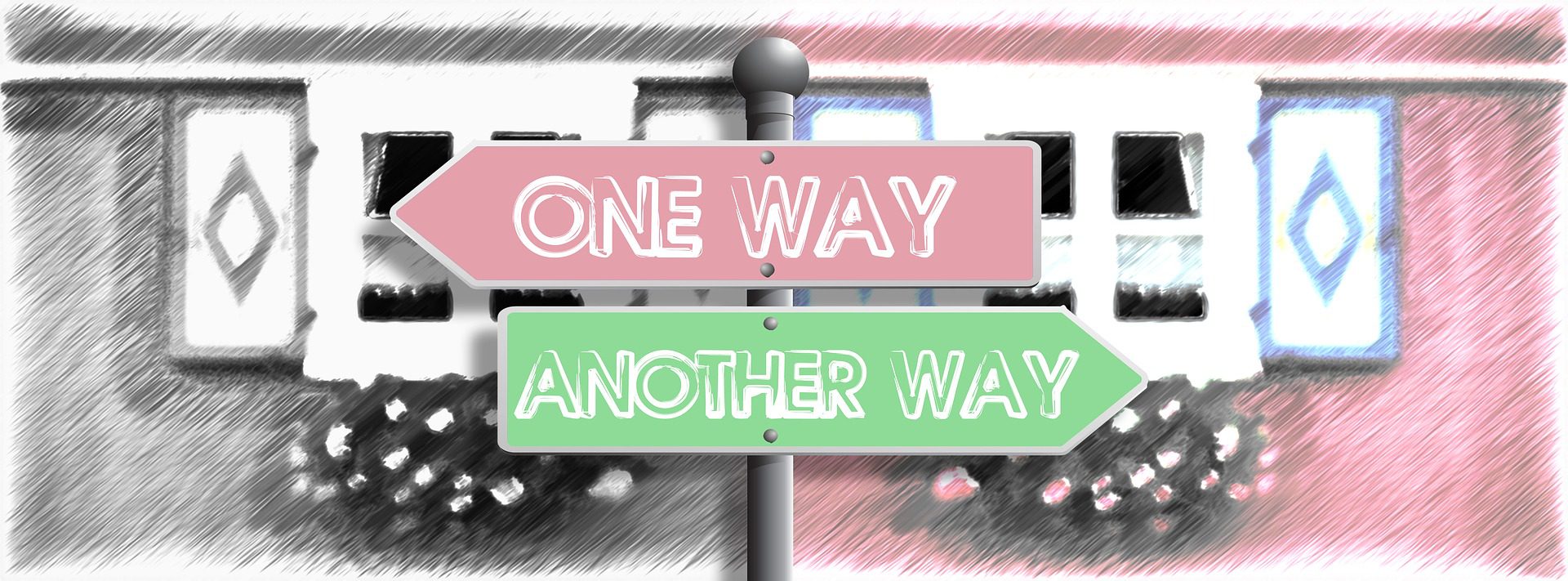
One of the issues we humans have to deal with as we get older is learning how to live with regret. Studies of elderly men have shown that usually their biggest regrets weren’t for the mistakes or bad decisions that they made in their life. No, their biggest regrets were about the things that they didn’t do.
Lately I have been thinking a lot about some of the paths I didn’t take in my life, and how different my life might have been had I taken them. A list of my biggest regrets include: not asking the girl I had a crush on in high school out on a date; not taking the cross-country bicycle trip around the American West when I graduated high school; chickening out on taking a trip to Europe when I was 21 and not finishing college in my 20’s.
I find it most interesting that many of my regrets seem to about chances that I didn’t take while I was in my late teens and early 20’s. This could mean a couple of things. Either I took advantage of opportunities that arose when I got older, or I calibrated my wish fulfillment to more realistic levels as I matured. Perhaps a little of both.
While feeling a sense of disappointment over things that didn’t work out the way we wanted is perfectly normal, it is important to balance our regrets with the wisdom to recognize of the things that we HAVE accomplished. In the immortal words of Sheryl Crow: it’s not having what you want, it’s wanting what you’ve got. Sometimes when I start beating myself up over lost chances, I make a list of things I have seen and done. It’s actually a rather impressive list. These lists have led me to the realization that if I had gone through with some of the things I regret not doing my life as I currently know it might not exist!
Would I go back and trade my marriage to Mrs. Vintage, or the joy of my daughters, or the friends I have gotten to know in my life for the opportunity to bum around Europe? Emphatically NOT. However, had I taken that trip to Europe it’s possible I never would have taken the job delivering pizzas to the airmen at the old Lowry Air Force base. Which means I might not of considered joining the Colorado Air National Guard. Which means I might have taken a completely different career path. Which means… and so on and etc. I could drive myself crazy going too far down that rabbit hole.

Fortunately for me, a few years ago I read “Bicycling Beyond the Divide”. Written by Daryl Farmer, it an autobiography/travel book about a 40-year-old man who decides to replicate a bike trip around the western United States that he had taken 20 years earlier. In 1985 Mr. Farmer took the bicycle trip that I didn’t have the courage to take. What prompted Mr. Farmer to retake his earlier trip was because he was disaffected about parts of his life. The fact that he was seventy pounds overweight and could barely walk up a flight of stairs without panting was another factor in his decision.
Mr. Farmer admits that his second trip was far more introspective than his first, which you would expect from a man who has 20 more years of experience under his belt. While the book is an interesting travelogue, the biggest take away I took from this book was this: even though he went on the bike tour I had only dreamed about taking as a young man, he too was dealing with feelings of regret as he progressed into his later years. I guess the moral of the story (and this post) is: you can’t make it out of this life without a few regrets.
Even if a person were to accomplish or obtain everything he or she ever dreamed of, they would still have regrets about paths or choices that they didn’t take. A part of getting older accepting our regrets and then moving on. The question we must then ask ourselves is: what do I want to do with my life with the time I have remaining?


I wish that someone would have exposed me to the Stoics when I was 25, especially Seneca. I have read “On the Shortness of Life” more than once and it gets deeper every time. I particularly like this part:
“After my fiftieth year I’ll retire to a life of leisure; my sixtieth year will bring release from all my duties.” And what guarantee, may I
ask, do you have that your life will last longer? Who will allow those
arrangements of yours to proceed according to plan? Are you not
ashamed to keep for yourself only the remnants of your existence, and
to allocate to philosophical thought only that portion of time which
can’t be applied to any business? How late it is to begin living just
when life must come to an end! What foolish obliviousness to our
mortality to put off wise plans to our fiftieth and sixtieth year, and to
want to begin life from a point that few have reached!”
Sounds like Seneca didn’t care for that whole “living with regrets” thing. The whole thing is here. Worth 20 minutes. https://archive.org/stream/SenecaOnTheShortnessOfLife/Seneca%20on%20the%20Shortness%20of%20Life_djvu.txt
I’ve always been jealous of Stoics. Sadly, I am too neurotic and “sensitive” to make Stoicism work. But I do agree with his Seneca’s belief that it is foolish to wait until the end of ones life to actually start living it. I think subconsciously I realized that sometime in my mid to late 20’s, which is why I have so few regrets from that time forward. I always strived to maintain a work/life balance. Work to me was a means to an end, not the end itself. As the old saying goes: nobody ever wished on their deathbed that they had put another day in at the office. Which is just another way of stating what Seneca said two millennia ago.
Still, I do wonder sometimes how different things would be if had I followed through. Better? Worse? Unless Clarence the Angel shows me what the world would be like without me, I guess I’ll just have to accept that it really has been a wonderful life. Or as Marcus Aurelius said:
https://s-media-cache-ak0.pinimg.com/564x/b3/06/9a/b3069a108ed4e984ed1735e9cd053eb7.jpg
Yeah, they lose me with the “Don’t let the death of a loved one affect you. You don’t own them and the event has nothing to do with you.” Paraphrasing, but that is the gist.
Did you know that ol’ Marcus wrote “Meditations” for his own purposes, never meaning for anyone else to read them? Might be why there is so much good stuff within.
I did not know that about Marcus. Yesterday I was reading some pretty awesome final last words. My favorite was from Voltaire. On his deathbed he was asked to forswear Satan. He said “this is no time to make new enemies”.